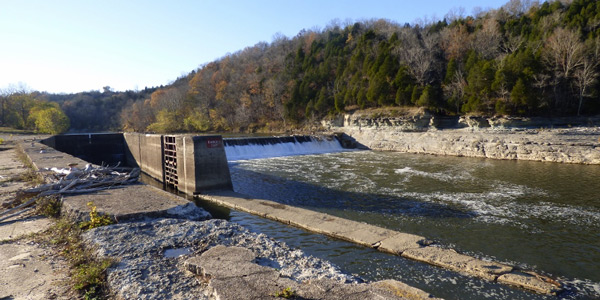By Jason Fordney
Developers of certain hydroelectric projects can feasibly get federal approval within two years under current regulations, FERC staff said last week.
With the passage of the Hydropower Regulatory Efficiency Act of 2013, Congress directed FERC to study the feasibility of implementing a two-year process for issuing hydropower licenses to non-powered dams and closed-loop pumped storage projects.
After conducting a pilot program, FERC staff determined the time frame is doable, noting that “site selection, a well-defined project proposal, thorough pre-filing consultation and a complete application” are the most important elements.
Staff said that updating and improving the “small/low-impact hydropower” portion of its website would expedite the process.
“Staff also commits to providing more frequent processing updates, when appropriate, to provide additional clarity and certainty during the licensing process,” the report said.
Eligible projects under the program were required to be at a non-powered dam or closed-loop storage project, have a well-developed proposal, result in little environmental impact and be in areas with substantial information on environmental resources and effects.
FERC staff determined in August 2014 that Rye Development’s Kentucky Lock and Dam No. 11 project met the criteria and issued the project a license in May 2016. The 5-MW capacity project will generate about 19,000 MWh annually.
Staff also examined processing times for 83 projects that were issued licenses or small hydropower exceptions between 2003 and 2016. Evaluations of 28% of these projects were completed in two years or less, with a median processing time of 1.4 years. Projects that were not licensed in two years tended to be larger, more complex and had more issues to examine.
A majority of commenters agreed the pilot was a success and that it is feasible to implement a formal two-year licensing program, staff said. Changes to the Federal Power Act are not required, but factors outside of FERC’s control, such as the actions of other agencies, could affect permitting timelines, according to the report.




